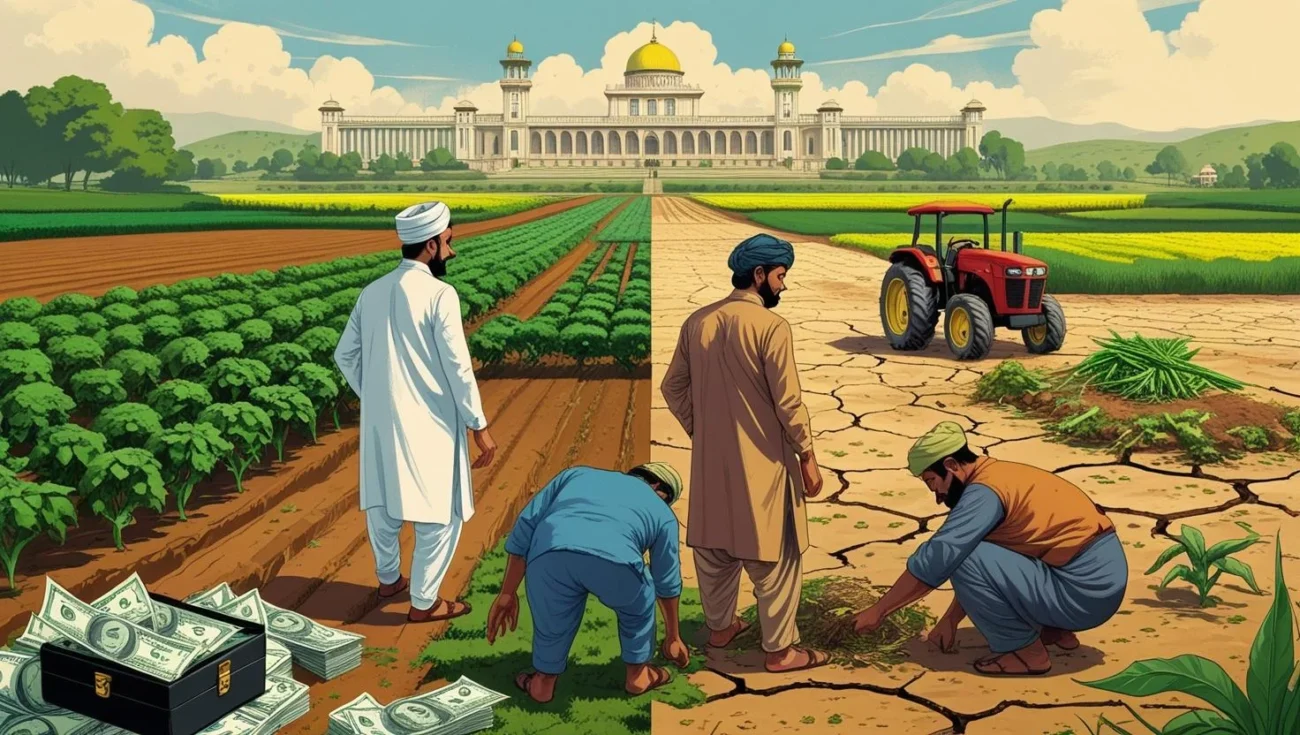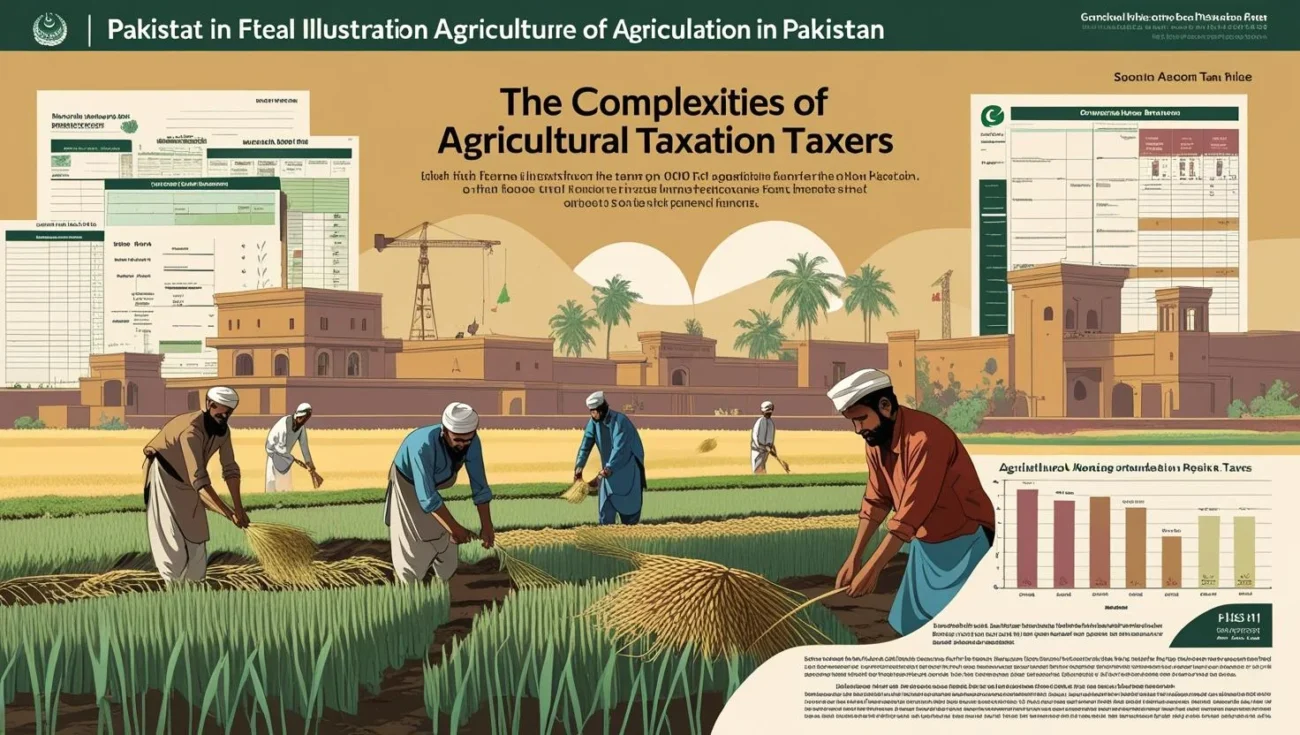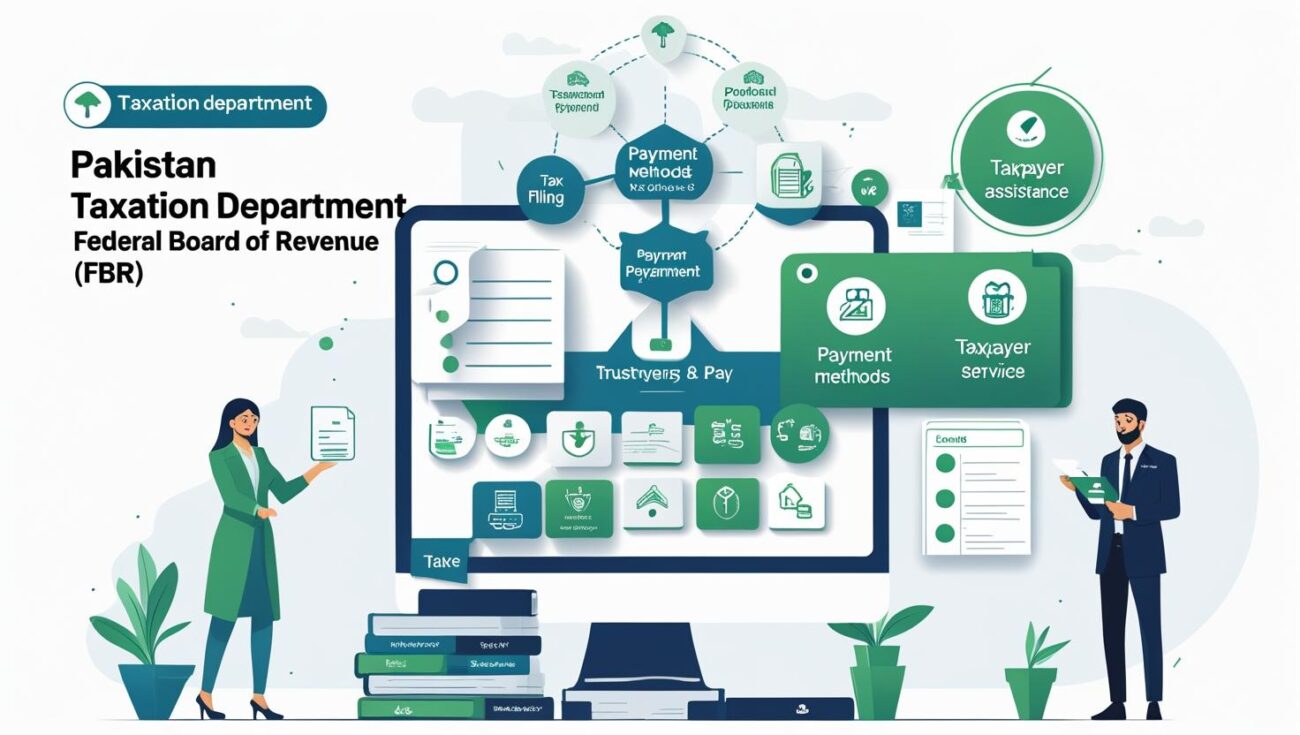The issue of agriculture taxation in Pakistan has been a taboo, or at most, a sidelined matter, constituting the modus operandi of fiscal policy. In a country where agriculture accounts for almost 20% of GDP(approx.) and engages nearly 37% of the working population; its taxation should be a fundamental part of the national revenue policy.
However, despite being a huge and vital sector, like so many areas of Pakistani life, Pakistan’s agriculture tax system is ineffective and politically skewed. This failure has perpetuated economic inequality, eroded public confidence in tax fairness and cost the government billions in lost tax revenue. Getting a grip on how and why this sector continues to be undertaxed is essential to any serious discussion of economic reform.
A Constitutional and Political Legacy
The origins of agriculture taxation in Pakistan are intrinsically linked to the country’s federal system of governance. Tax in relation to agricultural income under 1973 Constitution is a matter for the God under Article 80 (2) not for the Caesars – the provinces and not the Centre. This dichotomy was supposed to recognize the particularity of land and farming practices locally, but in reality, it forms a system of schismatic inefficiency.
Each province — Punjab, Sindh, Khyber Pakhtunkhwa and Balochistan — has set its own rules, which go largely unenforced, and coordination is almost nonexistent. There are provisions under the law in all the four provinces to tax the agricultural income or to levy a land-based tax but the collection of revenue is virtually zero.
Under this constitutional setup, the federal government has also been able to stay away from taxing agricultural income for national income tax, which has put a check on the strict scrutiny from audit and accountability. The story of agriculture taxation in Pakistan, therefore, is that of a missed opportunity, and institutional neglect.
Who Really Pays? A Broken System of Accountability
Notwithstanding the available legislation, the real application of agriculture taxation in Pakistan has been quite defective. Most of the country’s farmers own only a few hectares of land and their earnings are lower than the taxable bracket. But the system also safeguards wealthy landowners — some of whom own thousands of acres and make millions of dollars a year. These wealthy landlords frequently pay little or no tax, exploiting legal loop holes, lax enforcement, and political influence to shirk that accountability.
A lot of Pakistan’s top politicians also happen to own huge amounts of land. The confluence of economic power and political control has made it near-impossible to introduce or implement laws that have agriculture income meaningfully in their crosshairs. These exceptions are publicly marketed as protection for “poor farmers” when in fact the richest players in the industry have the most to gain. Meanwhile, wage earners and small-business owners — with little escape from scrutiny — pay the brunt of the tax bill. This unequal system has generated enormous resentment and further undermined the legitimacy of the larger tax code.

The Illusion of Equality
The discourse surrounding agriculture taxation in Pakistan is frequently framed around the protection of rural livelihoods and the pursuit of food sovereignty. Because, these legitimate concerns have often served as a distraction from the larger issue at hand: wealth concentration and tax dodging. Most of Pakistan’s farmers work on small pieces of land, and they are often under financial strain and lack access to credit. These farmers are not impacted by an effective tax policy that affects only high-income agricultural producers.
Regrettably, it is the absence of reliable data and lack of record-keeping, in addition to the heights of political intolerance at work that thwart the evolution of a progressive tax system which makes the poor peasant farmer in rural Homa Bay different from the agribusiness industrialists. Taxes on agriculture are perceived by the public as an assault on the rural poor, even as the majority of small and marginal farmers earn far below taxable income limits. This falsehood has helped maintain business as usual, which leads to economic and social inequity.
Institutional Weaknesses and Revenue Loss
One of the main causes of the failure of agriculture taxation in Pakistan is the institutional frailty of the provincial revenue authorities. These offices are often understaffed, under-resourced, and under-trained to evaluate, tax, and collect from agricultural income earners. The majority of the time, tax forms are not filed, and when they are, income is drastically understated. It is also easy to hide or move agricultural income among entities or family members to use exemptions.
The effect of this failure of institution is loss of huge revenue. It’s estimated that the government could earn tens of billions of rupees in revenues each year through efficient agriculture taxation in Pakistan. The industry, instead, accounts for less than 0.1% of all taxing authority revenue. This shortfall not only constrains the government’s capacity to invest in public services, but also makes it more dependent on indirect taxes which impact the poor and middle classes more heavily.
Social and Economic Distortions
Apart from its fiscal implications the non-enforcement of agriculture taxation in Pakistan’s fields also distorts economic incentives and social justice. When holding land becomes a tax haven, it incentivizes elites to put their money into land rather than into productive sectors like manufacturing or technology. This process holds back economic diversification and centralises wealth. It also discourages agricultural innovation by preserving financial non-viability of inefficient and unproductive farms whose only special traits is that they do not pay taxes.
The agriculture income tax-exemption also has the inevitable effect of producing public cynicism about the fairness of the system. If tax is being extracted from ordinary citizens earning minimal sums of money while multi-millionaire landlords are paying nothing then the moral authority behind tax collecting collapses. It poses an obstacle for non-enforcement reform elsewhere. Confidence in government institutions breaks down when people believe the system is designed to entrench privilege, rather than advance fairness.

The Way Ahead: Reform and Resistance
Agriculture taxation reform will not be easy in Pakistan. Just any measure to place the industry under a level-playing field and transparent tax regime is likely to be opposed by influential lobbies and politicians. But the cost of inertia in the long term is much higher than the pain of reform in the short term. A fairer system is achievable, but must rest on a few core principles: transparency, fairness and political will.
The first is that it’s about time there was a uniform, and forward-looking tax regime on a pan-Canada basis, less the warranted exception for very low income farmers. Second, enforcement should be enhanced through the use of modern technologies like satellite imagery, land registration databases, and digital financial accounts. Third, public awareness-building campaigns should start to change the story line—from victims to collective culpability. Finally, collaboration between federal and provincial governments should be strengthened to standardize policy implementation and data sharing.
Conclusion: A Test of Fairness
Agriculture taxation in Pakistan is not only a technocratic issue at stake; it is a challenge of the country’s resolve to being just, accountable and a sustainable country for its future growth. The current setup tilts in favor of the rich, squeezes the middle class, and drains the country of much-needed resources for progress. Pakistan will not be able to develop economically and socially if it doesn’t address the deep-seated privileges that allow the rural elites to avoid paying their fair share.
By introducing fair, equitable and enforceable agriculture taxation measures, Pakistan will be able to restore trust in its institutions and promote more equitable distribution of wealth across society. Only then can agriculture live up to its promise — not just as the economic backbone of the country, but as a sector that promotes national unity and fiscal justice.


